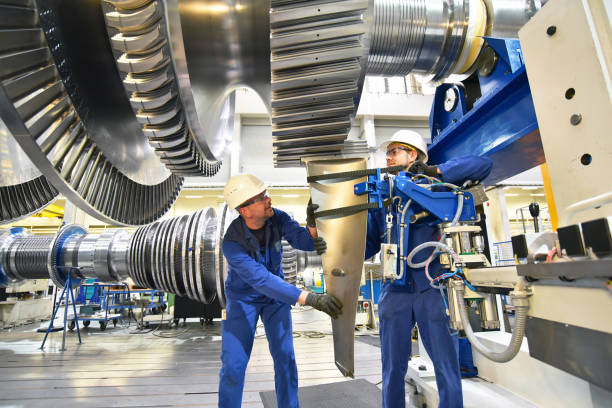Jobs
Skilled Jobs in Germany: A Guide for African Professionals
Skilled Jobs in Germany: A Guide for African Professionals
Germany, known for its strong economy, innovative industries, and advanced infrastructure, is a top destination for skilled professionals worldwide. For Africans seeking a rewarding career abroad, Germany offers ample opportunities in key sectors, attractive salaries, and a streamlined visa process. In this guide, we’ll explore the skilled job market in Germany, delve into salary expectations, and outline the visa application process to help you make an informed decision.
Key Skilled Job Sectors in Germany
Germany’s economy thrives on a mix of traditional industries and emerging sectors, all of which present vast opportunities for skilled professionals. Below are some of the major sectors where skilled workers are in high demand:
1. Information Technology and Software Development
Germany is a global tech hub with cities like Berlin, Munich, and Hamburg leading the charge in digital innovation. The demand for software developers, cybersecurity experts, data scientists, and IT consultants is consistently high. With Germany’s focus on digital transformation, tech roles remain crucial for the nation’s continued growth.
2. Engineering and Manufacturing
Germany’s reputation for excellence in engineering and manufacturing is well-established. Mechanical engineers, automotive engineers, and electrical engineers are in great demand. Additionally, specialized fields like robotics, mechatronics, and renewable energy engineering are booming due to advancements in technology and sustainability.
3. Healthcare and Medical Professions
The healthcare sector in Germany is one of the most advanced in the world. The aging population, coupled with Germany’s emphasis on healthcare quality, has created a need for doctors, nurses, physiotherapists, and specialists in elderly care. There are also opportunities for lab technicians and pharmacists.
4. Construction and Skilled Trades
As infrastructure projects grow across Germany, the demand for civil engineers, architects, and skilled tradespeople such as electricians, plumbers, and carpenters is increasing. These roles are essential for modernizing Germany’s cities and building sustainable housing projects.
5. Finance and Business Services
Frankfurt is a major financial hub in Europe, home to many multinational corporations and financial institutions. As a result, financial analysts, accountants, auditors, and investment managers are highly sought after. Additionally, business professionals with expertise in international trade and logistics can find lucrative career opportunities.
6. Education and Research
With numerous universities and research institutions, Germany has a demand for educators, researchers, and professors in various fields. English-speaking teachers, especially those with expertise in STEM subjects or international languages, can find rewarding positions in schools and private institutions.
Average Salaries in Skilled Job Sectors
Germany’s salaries vary widely depending on the industry, location, and experience level. Here’s an overview of average annual salaries in key sectors:
- Information Technology and Software Development: Entry-level professionals can earn between €45,000 and €55,000 annually. With experience, software developers, data scientists, and cybersecurity experts can earn between €60,000 and €85,000 per year. Senior roles in IT often exceed €100,000.
- Engineering and Manufacturing: Entry-level engineers earn between €40,000 and €50,000 annually. Experienced professionals in fields like automotive engineering, robotics, and renewable energy can earn between €70,000 and €90,000 per year. Senior engineers in specialized areas may earn more than €100,000.
- Healthcare and Medical Professions: Nurses earn between €35,000 and €45,000 annually. Medical practitioners, including doctors and specialists, can earn between €60,000 and €120,000 annually, depending on the specialization.
- Construction and Skilled Trades: Civil engineers earn between €45,000 and €60,000 per year, while architects can earn upwards of €65,000 annually. Skilled tradespeople such as electricians and plumbers earn between €30,000 and €45,000 annually, with higher earnings for those with extensive experience.
- Finance and Business Services: Financial analysts and consultants earn between €45,000 and €60,000 annually. Senior managers and investment professionals often earn over €100,000 per year.
- Education and Research: English-speaking teachers earn between €30,000 and €45,000 per year. University professors and researchers in specialized fields can earn significantly higher salaries, often between €50,000 and €80,000 annually.
Visa Process for Skilled Workers in Germany
Germany has a straightforward visa process for skilled professionals seeking to live and work in the country. Here’s an overview of the steps involved:
1. Secure a Job Offer from a German Employer
The first step in the visa process is securing a job offer from a German employer. The employer should be willing to sponsor your visa application and provide the necessary documentation to prove your skills are required for the position.
2. Apply for an Employment Visa (Arbeitsvisum)
Once you have a job offer, you need to apply for an employment visa at the German embassy or consulate in your home country. Here are the key visa types for skilled workers:
- EU Blue Card: This visa is ideal for highly skilled professionals, particularly those in technology, engineering, healthcare, and other high-demand fields. The EU Blue Card is valid for up to four years and offers a pathway to permanent residency.
- Job Seeker Visa: If you don’t yet have a job offer, you can apply for a job seeker visa, which allows you to stay in Germany for up to six months to search for employment. Once you find a job, you can transition to an employment visa.
- Work Visa for Skilled Professionals: This visa is for professionals with recognized qualifications in regulated professions like healthcare, engineering, and IT.
You will need to submit documents such as your employment contract, proof of qualifications, passport, and visa application form.
3. Recognition of Qualifications
If your occupation is regulated in Germany, you may need to have your qualifications officially recognized. For healthcare professionals, engineers, and teachers, it’s crucial to check if recognition is required and complete the necessary processes before applying for a visa.
4. Obtain a Residence Permit (Aufenthaltserlaubnis)
Upon arriving in Germany, you must register with the local authorities and apply for a residence permit. The residence permit allows you to legally live and work in the country. Depending on your visa type, you may be eligible for a long-term residence permit, which is renewable.
- Requirements: You’ll need to provide proof of residence, health insurance, and financial stability to obtain your residence permit.
5. Complete Administrative Formalities
After obtaining your residence permit, it’s essential to complete other administrative tasks such as opening a bank account, enrolling in the German social security system, and registering with local municipal authorities. These steps are necessary for accessing healthcare, housing, and other public services.
Why Choose Germany?
Germany offers numerous advantages for skilled professionals, making it an attractive destination for African professionals. Here are some compelling reasons to choose Germany:
1. Strong Economy and Job Opportunities
Germany’s economy is the largest in Europe, providing a stable environment for career growth. From technology and engineering to healthcare and education, Germany’s diverse job market offers a wide range of opportunities for skilled professionals.
2. Excellent Quality of Life
Germany is known for its high quality of life, efficient public services, and modern infrastructure. The country offers a balance between work and personal life, making it a great destination for expatriates.
3. Career Growth and Development
Germany values skill development and professional training. Companies offer numerous opportunities for career advancement, skill enhancement, and leadership roles. This focus on growth makes it an ideal environment for skilled professionals to thrive.
4. Cultural Diversity and Multicultural Cities
Germany’s cities are known for their multicultural environments, which create a welcoming atmosphere for expatriates from all backgrounds. Moreover, Germany’s rich cultural heritage and scenic landscapes provide a fulfilling experience for international professionals.
5. Pathway to Permanent Residency
Professionals working in Germany on an EU Blue Card or other work visas have a clear pathway to permanent residency. After a certain period of residence and integration, skilled workers can apply for permanent residency, offering long-term stability.
Conclusion
Germany is an excellent destination for skilled African professionals seeking opportunities in technology, engineering, healthcare, finance, and more. With its thriving economy, attractive salaries, and welcoming environment, Germany provides the ideal setting for career growth and personal development.
If you are looking to expand your career horizons, Germany’s dynamic job market and streamlined visa process offer a promising pathway. Start planning your career move today and take the first step towards a successful future in Germany!







